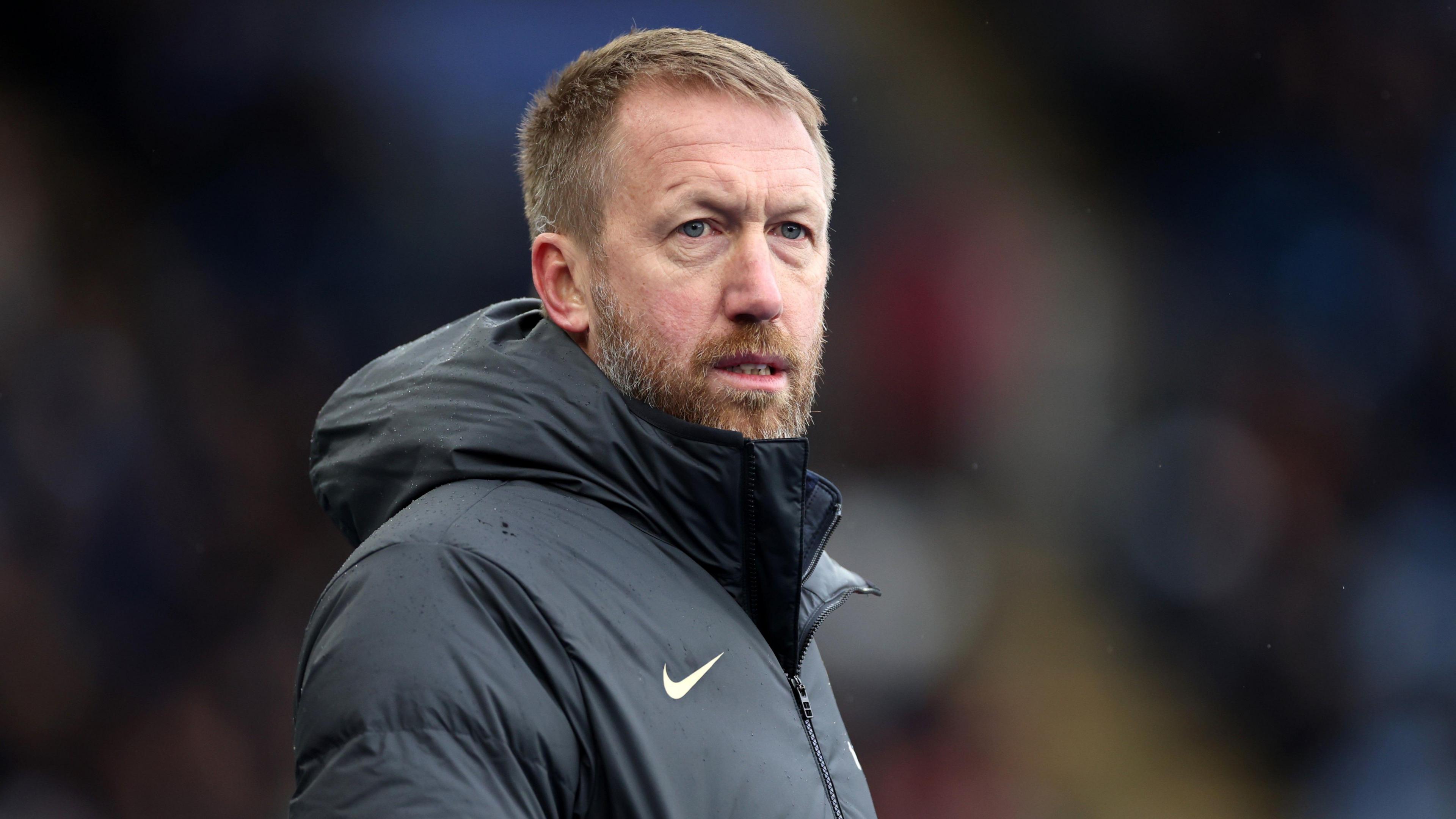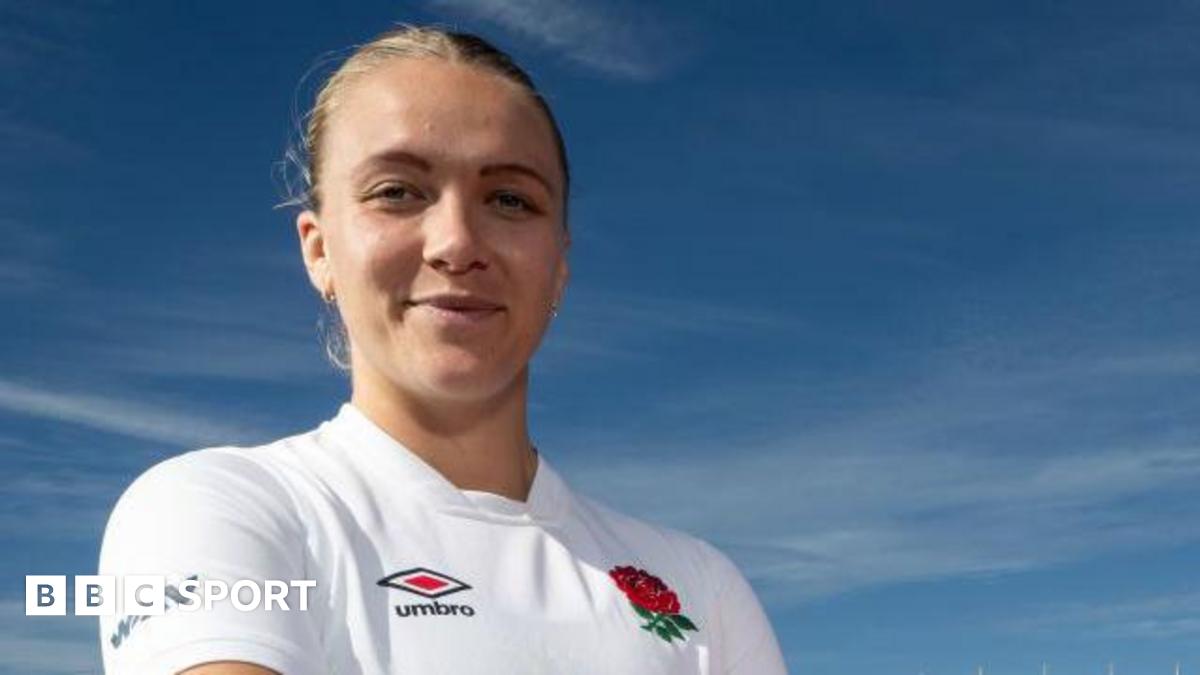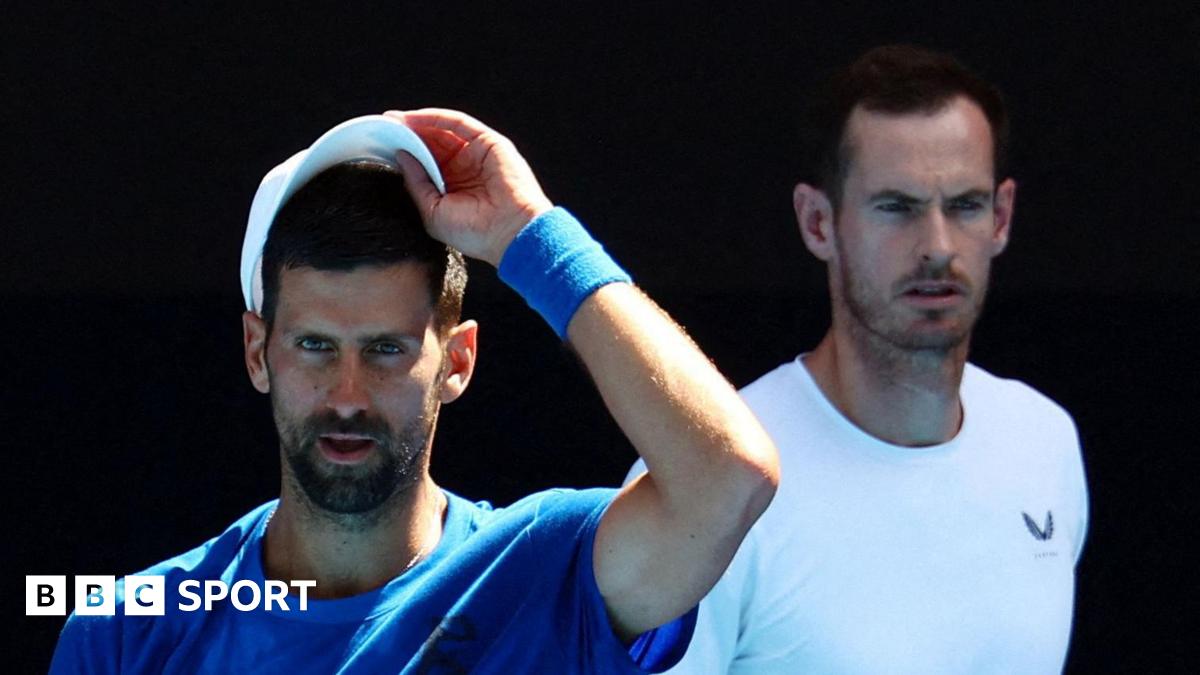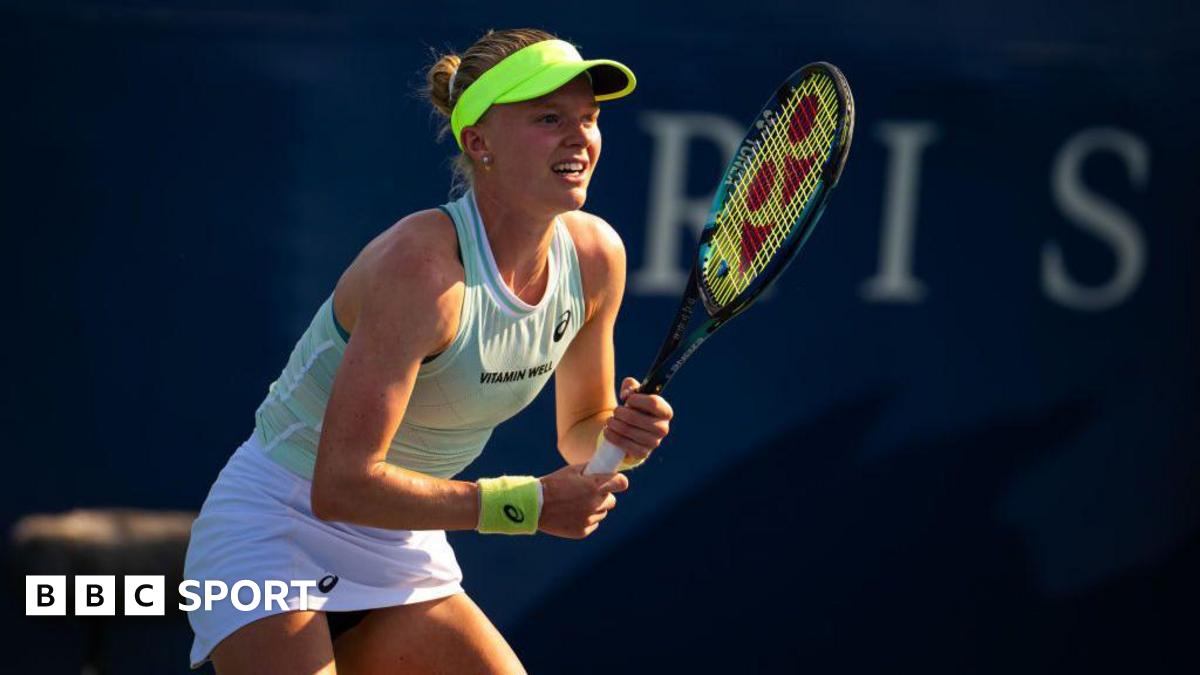ARTICLE AD BOX
 Image source, Getty Images
Image source, Getty Images
Potter has been out of work since leaving Chelsea in April 2023
Jess Anderson
BBC Sport journalist
BBC Sport football news reporter
It has been 647 days since Graham Potter was sacked as Chelsea manager, and he's been out of work since.
Having been linked with a number of top jobs during this period, the former Brighton boss will now become the next West Ham manager.
Potter was in the frame for the England manager's role in the summer and has also been in the running for jobs at Ajax, Leicester City and Sweden.
He admitted his dismissal from Chelsea "hurt a lot" and, while he was only in charge for seven months, his stock has remained high.
In several recent media appearances the 49-year-old said he was "ready" to return to football but the role "still has to be the right thing".
So, why West Ham now? What went wrong at Chelsea after his impressive work with Brighton? BBC Sport examines whether Potter would be a good fit for the Hammers.
'Thought-provoking' & 'meticulous' - what is Potter like as a manager?
A former defender at clubs such as Birmingham, Stoke and West Brom, Potter first gained recognition as a manager after guiding Swedish fourth-tier side Ostersunds FK to three promotions in five seasons. His seven-year spell also included a first major trophy with the Swedish Cup and a spot in the Europa League, where they famously beat Arsenal 2-1 at the Emirates Stadium, but lost the last-32 tie 4-2 on aggregate.
It was an unconventional route for an English manager, but one which led him to Swansea in 2018 and Brighton a year later, before he joined Chelsea in 2022.
Amid links to Tottenham and Everton jobs in the past, Potter said he will never be thought of as a "sexy" coach, saying: "It is hard to be a sexy name when you are called Potter, especially if your first name is Graham. Then it becomes even more difficult. Add into that a long face and a ginger beard and all the rest of it and I just have to stick to being a football coach and work with the players."
Often referred to as a compassionate and thoughtful coach, Potter cemented himself as one of the game's most exciting prospects at Brighton - where he was charged with turning them from a consistently relegation-threatened side to a stable Premier League club with a more adventurous style of play.
Former Seagulls forward Glenn Murray played under him and said Potter was a "thought-provoking manager" who "meticulously studies every opponent".
"He knows exactly what he wants, but he wants feedback from the players. It's a collective rather than a dictatorship," added Murray.
"One thing that really struck me about him, and he probably doesn't get enough credit for, is that we were a team that were in survival mode in the Premier League.
"He managed to change the culture and change the style of play. That's not an easy thing to do while remaining stable."
Amid the focus on tactically dogmatic coaches such as Ange Postecoglou and Ruben Amorim, Murray said Potter's style was "fluid" and he was not opposed to making changes to formation or tactics during a game.
"When I played under him, we would change formations two or three times in a single afternoon, which is quite a skill to be able to have your players understand everything you want from them and be able to change in-game," he admitted.
While Brighton have gone on to achieve bigger things since Potter left the Amex - playing in Europe under Roberto de Zerbi after achieving a sixth-placed Premier League finish - sources at the Seagulls have suggested the Italian boss benefited massively from the work Potter had done during his stint.
Off the pitch, Brighton sources said Potter was a "deep thinker" and a "very intelligent guy" who cares about the world. He once spent a night on the streets to raise awareness for homelessness and has a Masters degree in leadership.
What went wrong for Potter at Chelsea?
When Potter was appointed Chelsea manager in September 2022, he had just led Brighton to a ninth-placed finish - the club's highest in the top flight at the time.
His ability to get the best out of young players made him attractive to a Blues side under new ownership with an ever-expanding squad and a strategy of signing exciting prospects on long-term contracts.
But Potter immediately felt the pressure of a packed dressing room and an instant weight of expectation.
In an interview with the High Performance Podcast, external in November last year, he said the "conditions were challenging" as the new owners made extensive changes.
"If you change 20-30 players in three transfer windows, the instability of that is hard to deal with," added Potter.
"It was not that I couldn't do it, but if you go in and take a sledgehammer to a place and change it that quickly then sometimes there's some collateral damage. I was a bit of collateral damage."
Potter said he felt he had been thrown in at the deep end with 14 matches in his first six weeks in charge across the Premier League and Champions League.
"It was an overload situation for me," he explained. "Looking back, one of my mistakes - if you are going to set up, then give yourself some time to plan and train.
"Maybe I decided to join too quickly, but it was Chelsea and the owners were speaking about building a young team capable of competing at the top end. I had spoken about bringing a lot of the things I did at Brighton to Chelsea.
"We weren't winning as much and the obvious answer was the coach isn't good enough. Pretty quickly you are written off, I thought I was written off fairly quickly."
Although Potter would not have to juggle the demands of European football at West Ham, he would be joining the club midway through the season - which can bring challenges with the January transfer window open and potential comings and goings to deal with.
Potter admitted he had to work through feelings of "bitterness, frustration and sadness" about his Chelsea spell, before considering a return to the game.
And, while it may have been a case of wrong place, wrong time for Potter at Stamford Bridge, his extended period of time away from management perhaps indicated he has simply been reluctant to make a rash decision which could result in a similar situation.
Image source, Getty Images
Image caption,Potter managed 31 games at Chelsea, losing 11 and leaving them in 11th place in the Premier League at the time of his dismissal
Can Potter deliver 'the West Ham way'?
West Ham have enjoyed success in recent years under previous boss David Moyes - winning the 2022-23 Europa Conference League and competing in the Europa League in the seasons either side of that.
While his departure at the end of last season seemed unusual from the outside, there was a feeling Moyes' time at the London Stadium had run its course, with fans calling for a more progressive style.
Former Hammers boss Harry Redknapp said: "It's not an easy place to manage - the expectation there is very high. Whoever goes there, not only do they have to produce a winning team, they've got to produce a team that plays what West Ham fans see as the West Ham way."
But Murray, who also played for Crystal Palace, Bournemouth and Nottingham Forest, felt West Ham was a "good fit" for Potter if given the time to implement his own philosophies.
"They want a better brand of football to be played at the London Stadium, and I think he'll be able to deliver that," he said.
Murray also added "entertaining football" does not just come overnight but Potter has experience of juggling style with substance.
In the Premier League era, West Ham managers have been given an average of 32 months in charge - or just over two-and-a-half years. That is longer than Newcastle, Everton, Tottenham and Aston Villa.
Sources with an understanding of the situation told BBC Sport that Potter had received other offers since leaving Chelsea, but he had chosen West Ham given the stable ownership and a track record of allowing managers time to build.
He also felt the club had a good squad compared to others in the lower end of the Premier League and the job felt like a good fit.
What is West Ham and Potter's ceiling?
West Ham are currently 14th in the table, seven points off the drop zone.
They have the worst defensive record outside the promoted sides and are conceding goals at a rate of 1.95 per game - the same as last season.
They are, however, scoring fewer goals than last term too, with a rate of 1.2 per game compared to 1.58 last season.
A ninth-placed finish in last year's Premier League meant they did not qualify for Europe, but a turnaround in form could still see them replicate the achievements of the previous campaigns by booking themselves a place in European competition.
"It's a very attractive job," said Murray. "They've shown desire to climb the league and I think everything is there at West Ham.
"Everything is geared up for a charge on the top six, and that is where that fanbase expects to be, fighting among those European places and going deep into competitions."

 14 hours ago
2
14 hours ago
2








 English (US) ·
English (US) ·